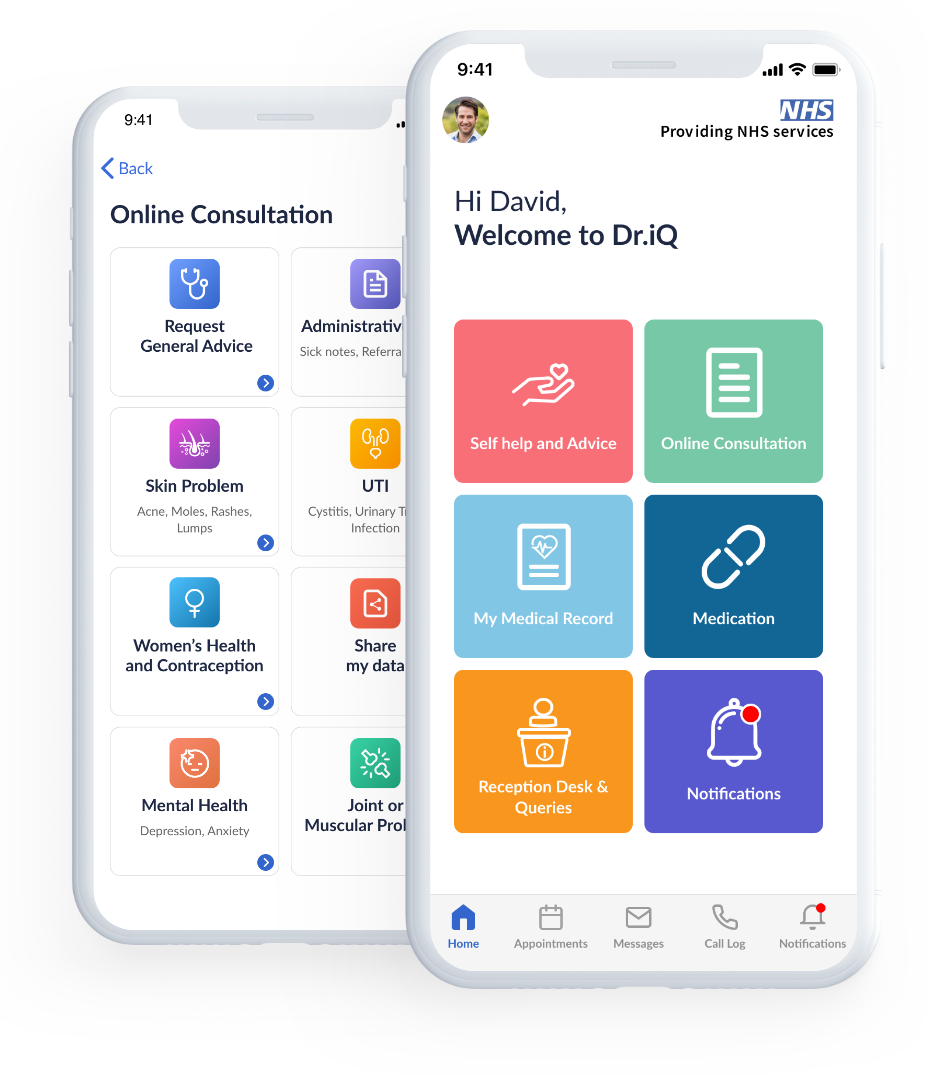
Dr. iQ is our practice mobile app. For the fastest, most convenient way to access our GP services,
download the app NOW:




Download Dr. iQ - our practice mobile app: Download Dr. iQ - The fastest way to access our GP services. |
|
|
New patients can register with our practice via Dr. iQ Register with us Conduct online consultations Update your profile View medical records Order medications |
|
|
Download Dr. iQ |
 |

Increase cases of measles

Measles can spread to other people easily.
Patients who have an appointment to come into the practice should not attend if they have:
- a fever and a rash; with
- cold symptoms;
- or a cough;
- or red, sore eyes (conjunctivitis)
Please contact the surgery and one of our clinicians will call you back.
For more information on measles, please visit the NHS website.
Headley Drive: Good CQC Rating
TRS: Good CQC Rating
24/11/2016Fieldway: Good CQC Rating
24/02/2017Headley Drive: Good CQC Rating
CQC’s new programme of inspections of England based GP practices focuses on rating according to whether they are safe, effective, caring, responsive and well led. Inspectors rated Headley Drive Surgery “Good” for providing caring and effective services.
Professor Steve Field, Chief Inspector of General Practice said “We carried out an announced comprehensive inspection at Queen Road Surgery on 11 August 2016. Overall the practice is rated as good.”
Our key findings across all the areas we inspected were as follows:
- There was an open and transparent approach to safety and an effective system in place for reporting and recording significant events.
- Risks to patients were assessed and well managed.
- Staff assessed patients’ needs and delivered care in line with current evidence based guidance. Staff had the skills, knowledge and experience to deliver effective care and treatment.
- Patients said they were treated with compassion, dignity and respect and they were involved in their care and decisions about their treatment.
- Information about services and how to complain was available and easy to understand.
- Patients said they found it easy to make an appointment and that there was continuity of care, with urgent appointments available the same day.
- The practice had good facilities and was well equipped to treat patients and meet their needs.
- There was a clear leadership structure and staff felt supported by management. The practice proactively sought feedback from staff and patients, which it acted on.
- The provider was aware of and complied with the requirements of the Duty of Candour.
We saw two areas of outstanding practice:
- The practice had on screen alerts set up for prescribing broad spectrum antibiotics; this made the prescriber aware that they can only prescribe medicines in the formulary and they must record their justification for prescribing these medicines which was linked to the patients’ notes. For example the practice had an automated template for acute tonsillitis which made clinicians complete a centor score (predicts the likelihood of bacterial infection) to justify use of antibiotics. Following the implementation of this system monthly antibiotic prescribing audits showed a decrease in prescribing rates from 772 to 573 in a four month period. The practice looked at the antibiotic prescribing of individual GPs as part of this monthly audit.
- The practice offered frontline telephone clinic between 9:00am and 1:00pm everyday where patients could speak to a GP who provided telephone advice or offered face to face appointments where appropriate. On average GPs were able to deal with 35 patients each day compared to 17 face to face appointments in a traditional setting. Following the implementation of this clinic the practice’s DNA rate (number of patients who did not attend their appointment) had reduced by 5%.
